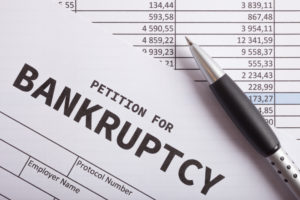 When you are going through severe financial difficulties, you may be wondering if filing for bankruptcy may be the right debt relief solution. Many people face financial struggles at some point in their life, so you are not alone. If you have a lot of debt that you are having a hard time paying off, it may be time to go to a lawyer to understand what you can do to better manage your debt. Filing for bankruptcy however does not mean that your finances will be ruined. It offers an opportunity for you to make a fresh financial start. Here are some tips that you should know to become familiar with to get back on track after filing for bankruptcy.
When you are going through severe financial difficulties, you may be wondering if filing for bankruptcy may be the right debt relief solution. Many people face financial struggles at some point in their life, so you are not alone. If you have a lot of debt that you are having a hard time paying off, it may be time to go to a lawyer to understand what you can do to better manage your debt. Filing for bankruptcy however does not mean that your finances will be ruined. It offers an opportunity for you to make a fresh financial start. Here are some tips that you should know to become familiar with to get back on track after filing for bankruptcy.
Create a budget
One of the first things that you should work on after finishing the bankruptcy process is to make a budget. Set clear financial goals for yourself and keep track of them. Once you have a good idea of your finances, setting goals will help you stay accountable. Whether you make one budget or create more specific budgets for different areas, such as for a family trip or emergency savings, having a budget will allow you to get a better sense of your finances and set firm boundaries. Sticking to a set budget can help you avoid making purchases that you do not need. It will force you to be mindful of your money and how you are spending it.
Limit your credit cards
While you may be tempted to sign up for a lot of credit cards when you receive offers, it is not a good idea to have more credit card accounts than you need. Do not think of credit cards as things that you should freely use whenever you want to buy something. You may want to consider only using one or two credit cards for specific categories of things like gas or household necessities. You might have a harder time keeping track of your monthly payments if you have multiple cards.
Build up your credit
Working on ways to build your credit immediately is highly recommended. As you can learn more about from a trusted bankruptcy lawyer, like one from The Law Offices of Neil Crane, there are a number of things that you can do to improve your credit score. Making monthly payments on time and not using more than 30% of your credit limit are just a few of the ways that you can build credit.
Have patience
Though bankruptcy does have a significant impact on your credit score, it is only a temporary drop. Many people who file for bankruptcy are surprised to learn that their score can begin to increase after just a short time, such as several months. It will take a while before you notice any meaningful changes in your credit score. Your credit score will not immediately go up, but you can expect it to increase gradually.
To receive more information about how to find the best debt relief option for you, set up an appointment with a trusted lawyer.






